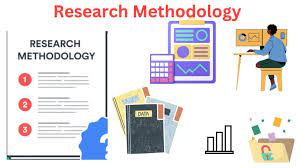What Methodologies Are Commonly Used in Ph.D. Theses and Why?

What Methodologies Are Commonly Used in Ph.D. Theses and Why?
Research methodologies play a pivotal role in shaping the outcomes of Ph.D. theses in [specific field]. As researchers embark on their academic journey, the choice of methodologies becomes a critical decision that influences the trajectory of their work. In this article, we'll delve into the world of research methodologies, exploring the common approaches employed in Ph.D. theses within [specific field] and unraveling the reasons behind their prevalence.
Understanding Research Methodologies
Before we plunge into the specifics, let's take a moment to understand what research methodologies entail. In essence, methodologies are the systematic processes and techniques researchers use to conduct their studies. They form the foundation upon which the entire research project rests, guiding the collection, analysis, and interpretation of data.
Research methodologies can broadly be classified into qualitative and quantitative approaches. Qualitative methodologies focus on understanding the nuances of human behavior and experiences, employing methods like interviews and case studies. On the other hand, quantitative methodologies involve the measurement and analysis of numerical data, often utilizing statistical tools for validation.
Common Methodologies in Theses
1. Quantitative Research Methodology
Overview of Quantitative Research
Quantitative research is characterized by the systematic collection and analysis of numerical data. This approach utilizes statistical methods to draw conclusions and make generalizations about a population.
Common Applications
Quantitative methodologies are prevalent in fields such as economics, psychology, and natural sciences, where measurable data is crucial for forming hypotheses and testing theories.
2. Qualitative Research Methodology
Unveiling Qualitative Exploration
Qualitative research focuses on understanding the depth and complexity of human experiences. It involves methods such as interviews, observations, and case studies, aiming to capture the richness of subjective data.
Varied Applications
Qualitative methodologies find applications in social sciences, humanities, and education, where researchers seek to explore the nuances of cultural practices, individual perspectives, and social phenomena.
3. Mixed-Methods Research
Integrating Quantitative and Qualitative Elements
Mixed-methods research combines both quantitative and qualitative approaches in a single study. Researchers employing this methodology gather both numerical and subjective data to gain a comprehensive understanding of the research question.
Holistic Understanding
This versatile methodology is useful when researchers aim to triangulate findings, validating results through different lenses and enhancing the overall robustness of the study.
4. Experimental Research Methodology
The Rigor of Controlled Experiments
Experimental research involves manipulating variables in a controlled environment to establish cause-and-effect relationships. This approach is common in scientific disciplines, providing a rigorous framework for testing hypotheses.
Controlled Environments
Experimental methodologies are prevalent in physics, chemistry, biology, and psychology, where researchers strive to isolate variables and draw precise conclusions.
5. Case Study Methodology
In-Depth Exploration of Real-World Instances
Case study methodology entails a detailed examination of a particular instance or phenomenon. Researchers analyze real-life situations to gain insights into complex issues, often exploring the unique context of a single case.
Real-World Applications
Case studies are widely used in business, medicine, and social sciences, offering an in-depth exploration of specific scenarios and allowing for rich contextual understanding.
6. Survey Research Methodology
Capturing Large-Scale Data
Survey research involves collecting data from a sample population through standardized questionnaires. This methodology is valuable for studying attitudes, behaviors, and opinions on a large scale.
Applications in Various Fields
Surveys are commonly employed in fields such as sociology, marketing, and public opinion research, providing researchers with a broad dataset for analysis.
7. Grounded Theory Methodology
Constructing Theories from Data
Grounded theory is an inductive approach where researchers develop theories based on the data itself. This methodology involves immersing in the data, identifying patterns, and constructing theories grounded in empirical evidence.
Emergent Insights
Common in sociology and anthropology, grounded theory allows for the exploration of new concepts and relationships, making it a valuable tool for theory development.
Conclusion
In conclusion, the methodologies employed in Ph.D. theses within [specific field] are diverse and nuanced, reflecting the multifaceted nature of research in this domain. From traditional approaches that stood the test of time to cutting-edge techniques driven by technological advancements, researchers have a rich tapestry of methodologies to choose from...
FAQs
How do I determine the most suitable methodology for my Ph.D. thesis in [specific field]?
- Understanding the nature of your research question and consulting with experienced advisors can help pinpoint the most suitable methodology.
Are there any ethical considerations I should keep in mind when choosing a research methodology?
- Yes, ethical considerations are crucial. Ensure that your chosen methodology aligns with ethical guidelines and respects the rights and well-being of research participants.
Can I combine multiple methodologies in my Ph.D. thesis?
- Yes, many researchers opt for a mixed-methods approach, combining both qualitative and quantitative methodologies to gain a comprehensive understanding of their research questions.
How do research methodologies evolve over time in [specific field]?
- Research methodologies evolve in response to technological advancements, societal changes, and emerging trends within the field. Staying informed and adaptable is key.
Where can I access additional resources on innovative research methodologies in [specific field]?
- Explore academic journals, attend conferences, and engage with online forums dedicated to [specific field] research to discover the latest innovative methodologies.
